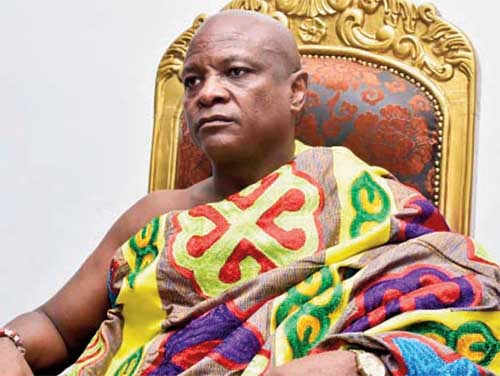Remember those funky bulgy cassette walkmans and ghetto blasters that were around just over a decade ago? How they use to be the audio-play gadgets of the time when there was no other way to listen to preferred music or audio content but to purchase your favourite cassette to play on these walkmans and radios. A lot has really changed over the last decade, right? Compact Disc’s (CD’s) took over, then came the not so sexy first iPod, and now the introduction of Apple Music by Apple Inc, Audible by Amazon, and Google Play Music for Android; bringing audio content hot-served on your mobile phone in the convenience of your palm and on-the-go.
If you have been to church lately or to a gospel music concert, you will have heard opening or closing announcements that read a such; “please go to the bookstore and be sure to buy a CD”. Are there even the players these days to play the CD’s bought by loyal congregants? Or is it just another dusty decorative item meant to sit on the shelves only to egoistically profit its author/ artiste without the purchaser necessarily benefitting from its content?
The facts are that 87% of the latest vehicle models are no longer being manufactured to contain built-in CD-ROMS; Most laptops manufactured and sold between 2015 to 2017 do not have CD-ROMS either; not to speak of the modern Hometheatres that only come with Bluetooth functionality, SD Card and pendrive slot but no CD-ROMS.
Considering the world is becoming more digitally advanced, one might wonder why the Christian community remains the largest distributor of audio content via CD’s. Environmentalists have criticised the degradation that CD’s do to our environment right from how they are manufactured to how they are disposed of. CD’s have a limited lifespan, a single scratch can cause the entire CD to be damaged; ironically, are God’s messages not meant for a lifetime? Will sticking to old methodologies of audio content distribution account for the ‘declined participation in Christianity globally’, as indicated by the PEW Reasearch center?
A group of Tech Envangelists at Communeity Technologies (Pty) Ltd. are changing the way the Christian community distributes its audio content. It’s Co-founder, Nii Sylvester tells us of how this is part of a bigger plan of helping Christian organisations and leaders build digital strategy. He anchors the fact that a lot of processess within Christendom are being managed manually and it is hightime that someone built proprietary technologies to facilitate the church’s work.
Through a mobile App called “eWord”, the team at Communeity Technologies believes Christian audio content creators will be able to distribute their Music, sermons, devotional guides, and motivationals within a safe and efficient space globally. Nii Sylvester emphasises, “You can call it your iTunes of the Christian world if you like, but eWord does a lot more. First it is segmented only for positive and Christian content, but more especially it goes beyond just music distribution. It carries mixed content categories such as audiobooks and motivationals that can be interpretated as combining the power of what Amazon’s Audible offers with what Apple’s itunes does”. By the way, ‘Audible’ is an audiobook distribution platform owned by Amazon.
Asked further what he means by a ‘safe’ space and why Christians cannot just use existing applications such as iTunes and Audible for their audio content distribution, Nii explains, “iTunes and other platforms are the wild forest. In the forests there are beasts, monsters and a lot of inappropriateness that will consume any Christian. I am personally disgusted when a gospel musician says to his Christian audience ‘go purchase my music on itunes’. It is like the sheperd letting his vunerable sheep from the pen into the wild forest, you will not do that, would you? It’s okay to have your content on other worldly platforms, but do not direct your won souls there. Those platforms are meant for soul-winning and not for your already won-souls.”
eWord makes its debut on the Google Playstore and Apple Appstore in September of 2017. It is intended to be the new phase of positive and Christian audio content distribution globally as described by its inventors. eWord’s interface is neatly designed and quite user-friendly. Unlike many other Apps of its kind, payments on eWord takes the African ecommerce scenario into great consideration by enabling mobile-money payments (MPESA, MTN Money, Vodafone cash, Airtel Money, Tigo Cash, etc..). It also has a 16-digit voucher system that can be purchased at any convenience store for onward use within the eWord Mobile App. The traditional Visa and Mastercard payment options are also incorporated. “Our goal is to build an African technology company providing global solutions” says Mr Sylvester, probably the reason the company’s headquarters is strategically located in South Africa and not in the proverbial Silicon Valley of America.
Asked how all the music and audio content on eWord gets on there, Nii tells us that all of eWord’s content is managed by the content creators and distributors themselves through an online merchant web portal (merchant.ewordstore.com). It is interesting to note that the merchants (ie; content creators and distributors; pastors, gospel musicians, authors, record labels, etc…) themselves determine the pricing of the content, locations for distribution and the content goes live to mobile users across the world when it is uploaded. Speaking of efficiency, merchants get access to a large data pool of analytics that tells them who is listening to which aspects of their content at anytime and also who purchased their content. The eWord App is also encrypted end-to-end, meaning its contents can’t be pirated, now that is a subject for another day.
As confidently believed by its inventors, will eWord be the panacea to CD content distribution within Christendom? Will eWord be the platform that finally lets the world say goodbye to audio CD’s? Will it be the go-to platform for serving gospel music, sermons, audiobooks and daily devotional guides immediately to the hands of over 800 million Christian mobile users globally? The next few months will present the answers.


















